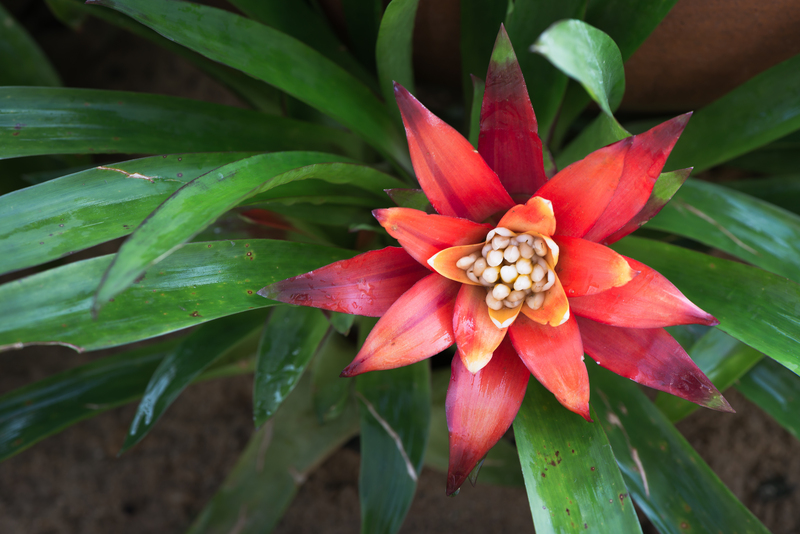15 Lawn Care Hacks Every New Gardener Needs to Try
If you're embarking on your first lawn care journey, you might be overwhelmed by the many tips and products available. Thankfully, these lawn care hacks can make a dramatic difference in the health and appearance of your green space, while saving you time and money. Let's dive in and discover how you can achieve a lush, enviable lawn with less effort!
Why Effective Lawn Care Matters
A well-maintained lawn does more than beautify your property. It adds curb appeal, gives children and pets a safe place to play, and can even increase your home's value. Plus, healthy grass reduces erosion, absorbs pollution, and helps keep your outdoor environment cool.
For beginners, several tried-and-true hacks can make lawn maintenance more manageable and enjoyable. Here are the 15 best tips to get you started:

15 Clever Lawn Care Hacks for New Gardeners
-
Mow Less, But Not Too Short
It's tempting to mow your grass as short as possible to delay your next session, but scalping the lawn harms the grass. Instead, mow frequently and never remove more than the top third of the blade. Taller grass shades the soil, keeping it moist for longer and crowding out weeds.
-
Sharpen Your Mower Blades Regularly
Sharp blades give a clean cut, reducing the risk of disease and stress on your lawn. Dull blades tear rather than slice, causing browning edges and a ragged appearance. Aim to sharpen your blades at least once per mowing season for the best results.
-
Practice Grasscycling
Don't bag those clippings! Grasscycling involves leaving the clippings on your lawn to decompose naturally. This returns valuable nutrients--especially nitrogen--to your yard, cutting down on fertilizer needs.
-
Water Deeply and Infrequently
Frequent, shallow watering encourages weak roots, while deep, infrequent soaking builds drought-resistant grass. Early in the morning is ideal for watering--evaporation is minimal, and disease risk is low.
-
Test Your Soil Before Fertilizing
Before spending on fertilizer, get a soil test kit from your local garden center or extension office. Match your fertilizer application to what your lawn actually needs, avoiding over- or under-feeding.
-
Use Organic Lawn Fertilizers
Opt for organic fertilizers such as compost, manure, or slow-release natural products. These feed the soil and support beneficial microbe growth, leading to a healthier, more resilient lawn over time.
-
Overseed in the Fall for Thicker Grass
Thicken up sparse lawns by overseeding in late summer or early fall. Choose a grass variety suited to your climate. This helps fill in bare spots, crowd out weeds, and improves overall turf density.
-
Treat Weeds Early and Naturally
Hand-pulling young weeds, overseeding, and using organic pre-emergent weed controls can drastically reduce weed problems. Avoid chemical spot-treatments unless absolutely necessary to protect pollinators and beneficial insects.
-
Aerate the Soil Annually
Over time, soil compacts from foot traffic and lawn equipment, making it hard for roots to grow. Aerating--removing plugs of soil with a special tool--improves drainage, oxygen flow, and fertilizer absorption. Aim to aerate your lawn once a year, ideally in the fall.
-
Mulch Grass Clippings and Leaves
Instead of raking and discarding autumn leaves, mow over them several times and let them break down into the soil. This natural mulch provides vital nutrients and helps keep moisture in the ground.
-
Resist the Urge to Over-water
Most lawns only need about one inch of water per week, including rainfall. Place a shallow container on your lawn while watering to measure your output and adjust as needed based on weather conditions and soil type.
-
Identify and Fix Brown Spots Promptly
If you spot brown patches, investigate immediately. Common causes are dog urine, pests, fungus, or thatch buildup. Address the underlying issue swiftly to prevent it from spreading.
-
Edge and Trim for Crisp Borders
Take a few extra minutes to edge along your lawn's borders, driveways, and garden beds. Sharp, clean lines instantly upgrade your lawn's appearance and prevent grass from creeping into unwanted areas.
-
Choose the Right Grass Type
Not all grasses are created equal! Make sure you plant a grass variety suited to your region's climate, sunlight exposure, and rainfall. Consult your local extension service for the best recommendations for your yard.
-
Monitor Lawn Pests and Act Early
Keep an eye out for grub damage, chewed blades, or bare patches that may indicate pest activity. Use environmentally friendly approaches like nematodes or least-toxic products, and treat only as needed.
Bonus Tips for Effortless Lawn Maintenance
- Set a regular mowing schedule, but vary the mowing pattern each time for healthier grass.
- Keep your mower deck clean to prevent disease spread and ensure an even cut.
- Encourage pollinators by allowing small patches of wildflowers to grow along the edges of your lawn.
- Top-dress your lawn with a thin layer of compost in spring to enrich and rejuvenate the soil each year.

Frequently Asked Questions on Lawn Care for Beginners
How often should I fertilize my lawn?
For most grass types, fertilize 1-3 times a year. Spring and fall are the best seasons to encourage root growth and recovery.
When is the best time to water my lawn?
Early morning--typically between 6 a.m. and 10 a.m.--is ideal. Avoid evening watering, as damp lawns overnight can encourage disease.
What's the fastest way to fix bare spots?
Rake the area, loosen the soil, and apply seed or sod. Keep moist until new growth is established.
Conclusion: Lawn Care Success is Within Reach!
Mastering lawn care doesn't have to be complicated or expensive. By following these 15 lawn care hacks for beginners, you'll cultivate a healthy, vibrant lawn with less stress and more enjoyment. Remember to observe your yard, adapt your techniques as you learn, and don't be afraid to experiment. Happy gardening--and may your lawn always be green and inviting!
Looking for more gardening tips? Bookmark this page and explore our other expert guides to make every aspect of your garden a lush, thriving oasis.